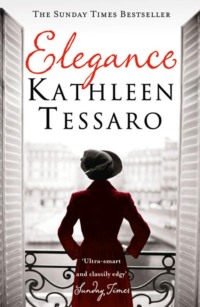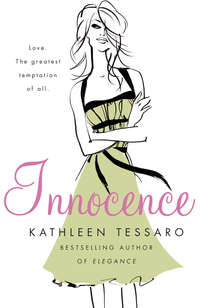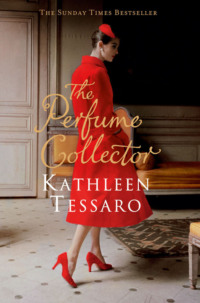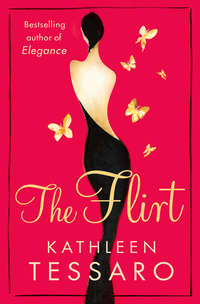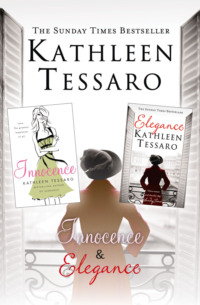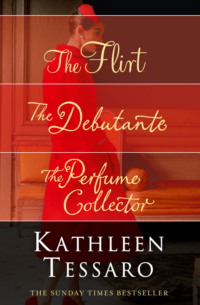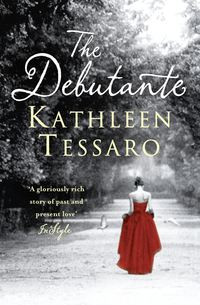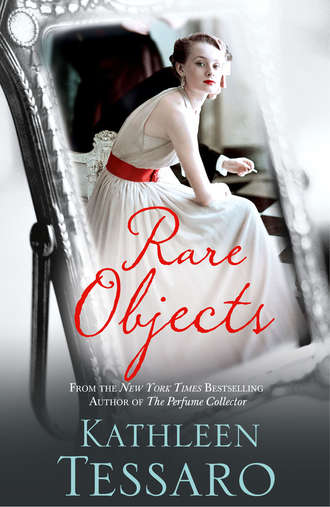
Полная версия
Rare Objects
I tried to remember the first time I’d met Angela and the Russo family but couldn’t. They’d simply always been there. For a while we’d all lived in the same tenement building, the one I still lived in now. The Russo children, especially the older boys, had “owned” the front stoop by virtue of being in the building the longest, but were gracious about sharing it with us younger ones. Angela and I were inseparable growing up: playing jacks and skipping rope, making little woolen dolls from old socks with button eyes that we pushed up and down the block in a broken-down old baby buggy that was used for everything from grocery shopping to junk collection. I was on my own a lot during the day while Ma worked piecing blouses together. But Mrs. Russo always made an extra place for me at her table, even though she already had five mouths to feed.
Angela and I made plans to run away from home and become professional dancers at eight; fell in love with the same boy, Aldo Freni, with his unusually long dark lashes, at ten; and were caught stealing lip rouge from the drugstore at thirteen, and received the same number of lashes as a result. She was the closest thing I had to a sister. And yet it was months since we’d spoken. My shame at my circumstances in New York had prevented me from writing, and she’d gotten married while I was in the hospital, a wedding I was meant to take part in as the maid of honor. Pina had to step in instead. Ma made excuses for me, told them the same tales I told her of eccentric millionaire bosses and unexpected trips abroad. But now that I was here, I felt a sudden attack of nerves and regret. The Russos knew me, could see past all my fictions.
It was Pina who spotted me first. When I left for New York, Pina was a newlywed. Now she was heavily pregnant. But though she may have enjoyed the rosy-cheeked sensuousness of a Rubens nude, there was nothing soft in her manner. “Oh, my, my!” She thrust her chin at me. “Look what the cat’s dragged in! Jean Harlow!”
Angela turned, and her face lit up. “Ciao, bella!” She made it sound light and natural, as if she’d only seen me the other day. “I didn’t recognize you! What have you done to your hair?”
The tension in my chest eased. Still, I couldn’t help noticing the wedding band that flashed, catching the morning sun as Angela expertly whipped the string around a cake box and tied it in a knot.
“Mamma mia!” Angela’s mother gasped, holding her palms to the heavens. “Maeve! What have you done to your beautiful red hair?”
All eyes turned.
“I cut it and … well …” I was turning red. “It’s for a job, actually.”
Pina snorted. “What, are you a Ziegfeld girl now?”
“Not exactly. A salesclerk. But no Irish.”
There was a time when the city was full of signs declaring “No Irish Need Apply.” We were considered little more than vermin. Then the Italians came, and suddenly we moved up a little in the world, only not quite far enough.
“Yeah, well, I’m surprised to see you here at all.” Pina folded her arms across her chest. “I thought this town wasn’t good enough for you. That only New York City would do.”
“Stop it!” Angela glared at her sister. “Just because you’ve never left Boston!”
“I don’t need to leave Boston. And evidently neither do you!” Pina laughed, nodding at me. “I hope you left a trail of bread crumbs so you could find your way home.” Pina always had a tongue like a stiletto blade. Even as a kid, she had a preternatural talent for verbal vivisection.
“Basta!” Her mother shot Pina a look. “We’ve missed you. Your mother told us you had important business in New York and couldn’t come to the wedding,” she continued evenly, resting her hands on her hips. “We’re sorry you couldn’t get away.”
Guilt stung beneath my smile.
“I’m sorry too. I mean …” I looked across at Angela; I was speaking to her more than anyone else. “I was working as a private secretary for a very wealthy man. Quite a difficult character, very demanding … I wanted to come, really I did.”
We all knew I wasn’t being honest. My story didn’t explain why I hadn’t written or called.
“Well, I’m just glad you’re here now,” Angela said, in that way she had of simply closing the door on anything difficult or unpleasant. “It’s good to have you back.” Then, popping a fresh loaf of bread into a paper bag and handing it across the counter to Mr. Ventadino, she flashed me a naughty smile. “La mia bella dai capelli biondi!”
“Ah, bella!” Mr. Ventadino laughed, eyeing me up and down. “Molto bella!”
The old men at the tables by the window laughed too, and Mrs. Russo rolled her eyes. “Girls! Comportatevi bene!”
Comportatevi bene—Italian for “behave yourself”—was the constant refrain of our childhood. When we were together, five minutes didn’t go by without Mrs. Russo saying it, usually with a rolled-up newspaper in her hand, ready to whack one or both of us on the back of the head.
Mrs. Russo turned to me, her face serious. She had a way of looking straight into your eyes, as if she could see right down into your soul. “Come stai davvero?”
“Bene. Meglio, grazie. E tu?” I answered.
When Mrs. Russo spoke in Italian, I knew all was forgiven.
“Bene, bene.” As she counted change and handed it to Mr. Ventadino, she shook her finger at us. “You girls need to grow up. And you!” She gave Mr. Ventadino a dark look too. “Dovreste vergognarvi di voi stesso! And how is your mother, Mae? I hope she’s well.”
Mrs. Russo had the knack of switching between conversations; she could reprimand Mr. Ventadino and still set an example for her daughter of civilized manners without missing a beat.
I stepped aside so Mr. Ventadino could slink past. “She’s fine, thank you.”
Mrs. Russo always asked after my mother, even though she didn’t entirely approve of her. After all the years they’d known each other, theirs was nonetheless a formal acquaintance, maintained by courtesy rather than affection. I suspected it had something to do with the fact that Ma had never married again, a fundamental feeling Mrs. Russo had about the wrongness of a young widow raising a child on her own when she could have easily taken another husband and had more children. In her world, independence was an extravagance, a kind of selfishness.
In truth, I’d always been torn between Ma and the formidable Maddalena Russo. I’d spent so much time in the Russos’ household growing up that she was a second mother to me—only of the more traditional variety.
Small and strong, fiercely disciplined, and certain of everything, Maddalena Russo never doubted, never questioned. She knew. The Russo home was strict, loud, vivid, and real. Nothing else existed nor needed to exist beyond the North End. It was an entirely self-sufficient universe. When I was younger, I used to pretend that I’d been left on the Russos’ doorstep one night as a baby, and they’d adopted me as their own. It was a betrayal I couldn’t resist, and my affection was transparent to everyone—including my mother.
“Is that a new hat?” Mrs. Russo nodded approvingly. “Very handsome!”
“It used to have a net, but it was torn … my mother fixed it for me.” I was babbling. “Anyway, I stopped in for a zaletti. I’m celebrating, you see. I got a job today.”
“Congratulations!” Angela beamed.
Pina passed a tray of fresh biscotti to her mother. “What you need is a husband!”
“Maybe I’m not the marrying type.”
Mrs. Russo clucked reprovingly. “Why do you say that? Any man would be happy to have you!”
“I don’t know.”
“Of course you know!” Pina and her mother looked at each other and laughed. “Don’t talk crazy!”
Reaching over, Angela handed a zaletti wrapped in waxed paper across to me. “I’ll stop by later.”
“I’d like that.”
I tried to give her a nickel for the zaletti, but she wouldn’t take it. “Go on, now. Tell your mother the good news.”
I lowered my voice. “I really am sorry, Ange. About missing your wedding.” I knew I’d hurt her, and I knew too that she had too much pride to let me see how much. “How was it?”
“It was lovely.”
“You should’ve been there.” Pina wouldn’t leave us alone for a minute. “Oh, that’s right! You were too busy taking notation for millionaires. One of these days, Jean Harlow, you’re going to have to wake up and realize you’re just like the rest of us.”
When I got home, Ma was scraping carrots in the kitchen. “Is that you, Maeve?” she called when she heard me come in.
“Who else would it be, Ma?”
“There’s no need to be sarcastic. Where have you been?”
I paused in the doorway. Potatoes, onion, celery … she was making a stew again. There was only ever the smallest bit of beef, a cheap cut softened with the hours of slow braising. She made it last through the week, adding extra potatoes to cheat it out.
“I got the job, actually,” I told her, setting the zaletti down on the table with a flourish.
She stared at it; I think she’d half hoped I wouldn’t get the position and then would dye my hair back. But of course work was always better than no work. “Good,” she said finally. “So, what’s it like?”
“Fancy. Very posh.” I hung up my coat on the hook in the hallway, pulled off my gloves. “You know, they have a silver service there that costs as much as a house! I showed it to a woman this afternoon.”
“Did she buy it?”
“No. But only because apparently it was missing lobster tongs. Have you ever even heard of lobster tongs?”
She frowned, began paring the potatoes into quarters. “Do you get commission?”
I checked the coffeepot on the stove. “I only just got the job, Ma!”
“You should ask for commission.”
“It’s just me and the old man.” I poured a cup. It had been too long brewing and was bitter and strong. I drank it anyway.
“What difference does that make?” She tossed the potatoes in the cooking pot. “A sale is a sale!”
“Yeah, well, I haven’t made a sale yet.”
“And they’re not going to fall into your lap!” she warned, pointing the paring knife at me. “You need to be friendly. Outgoing.”
“I am friendly!”
“But you’re not outgoing, Maeve!” She scraped the carrots so hard one snapped in two. “You’re an introvert. Even as a baby you were quiet. All that time spent in your room reading!” She shook her head. “Too much time daydreaming—that’s always been your trouble! You have to make a concerted effort. You need to act like you’re the hostess at a party!”
What had gotten into her today? “Didn’t you hear me? I got the job!”
She stopped, wiped her hands on her apron. “Mrs. Shaw’s retiring next week.”
“Does that mean …”
“It means they’ve hired a new saleswoman in Ladies Wear. And it isn’t me,” she added bitterly.
Here was the crux of the matter. Unfortunately we’d been here before, and I’d exhausted my repertoire of conciliatory clichés.
“I’m sorry, Ma. You’re too good at your job, that’s the problem.” It was a stupid thing to say, but I had nothing left.
She stirred the stew on the stove, staring fixedly into the pot. “You’re lucky. You don’t realize it, but you are. You can really make something of yourself. It’s too late for me. But you can be somebody.”
I didn’t know what to say.
“You mustn’t waste your opportunities. Do you understand?” She turned. “You can be anything you want, anything you set your mind to, Maeve. You’re so clever, so much more capable than I ever was.”
“That’s not true.”
But she was serious. “You mustn’t fail yourself. Do you understand, Maeve? You mustn’t settle.”
There was a knock at the door.
“Who’s that?”
“Angela said she would stop by.”
“Angela?” Suddenly she seemed small and forlorn, caught off guard. “Tonight?”
I got up. “I’ll tell her I’ll see her another time.”
“No.” Yanking the strings of her apron, she pulled it off, handed it to me. “Keep an eye on dinner. I’m going to lie down.”
I poured some fresh coffee into one of my mother’s Staffordshire willow-pattern teacups and passed it to Angela. “Sugar?”
“Yes, please. These are nice.” She held up her cup, admiring the delicate blue-and-white oriental design. “I’ve never seen these before. Where did they come from?”
“They’re my mother’s. A wedding gift.” I smiled. “But we only use them on special occasions.” I wanted to make things up to her.
“I’m honored!”
I sat down across from her at the kitchen table. “I’m sorry we don’t have any cream.”
(In truth we never had it.)
We divided the zaletti in half on a plate.
“Here’s to you and your new job!” Angela raised her cup.
“Here’s to you and your new husband!” We took a drink, and then I asked, “So, what’s it like, being married? I want to hear everything!”
“Oh, Mae!” She blushed, gave me a slightly embarrassed grin. “I don’t know! It’s different. I mean, from what I thought it would be like.”
“How?”
Cupping her cheek in her hand, she pretended to concentrate on stirring the sugar into her coffee. “Faster!” she whispered back with a giggle. “Seems no sooner do we close the bedroom door than … you know, he’s on top of me!”
“Well, men are like that. You have to slow them down.”
“Mae!” She gave me a stab in the ribs. “You shouldn’t know these things! And it hurt.” Her face flushed pink again. “He kept apologizing!”
“What about the rest of it? You know, the bits that happen outside the bedroom.”
She rolled her eyes. “I hate living at his mother’s house. It’s like being a bug in a glass jar; everyone knows everything you’re doing all the time. But we haven’t the money to move yet.”
I lit two cigarettes on the stove and passed one to her. “No one’s got any money. At least he has a job.”
“Oh, he’ll have more than that when he graduates from pharmacy school—he’ll have his own business. We’ve got our eye on that corner shop on Salem Street. It would make a perfect drugstore.” She tilted her head, looking at me sideways. “What about you? How was New York?”
“Fine. Good to be home.”
Her eyes met mine. “Really?”
She could always see right through me.
I felt an awkward flush of shame, took a long drag. “Well, maybe it didn’t go quite the way I planned.”
“You never answered my letters.”
“No … I’m really sorry about that.”
“Are you upset at me?”
The hurt in her voice pricked my conscience. “No, Angie. Not at all. I wanted to write, really I did.”
“So why didn’t you?”
“I didn’t want you to worry, that’s all. It was hard.” I shrugged, tried to smile. “I had troubles.”
“What kind of troubles?” Her voice became stern, maternal. “What happened, Maeve?”
I wanted to tell her; I wanted to be able to tell her. But it was all so far away from anything she was used to, and it had been so long since we’d really spoken. Instead I grabbed at a half-truth, hoping that any confession might draw us closer again.
I inhaled. “I got in the habit of going out after work, hanging out in clubs. I guess I started to drink too much, Ange.”
“Oh, Mae!” The shock and disappointment in her face surprised me. “You mean bootleg gin?”
I knew Angela didn’t approve of drinking. In fact, I’d always hidden how much I’d drunk from her, knowing she thought of it as something only men did and distinctly unladylike. Wine was the exception, but like most Italians we knew, she didn’t count wine as alcohol. The homemade version her father and brothers made in the summer and kept stored in wooden barrels in the basement of the shop was sweet, fruity, and mild. Not even the police bothered to confiscate it. But still, I’d expected her to be more worldly and understanding.
“I wasn’t the only one! Everyone drinks in New York,” I said, “men, women, young, old, Park Avenue right down to a bench in Central Park! But it sort of sneaks up on you. And it does make everything messier …”
“Then just don’t drink.”
Nothing was complicated for Angela. It was one of the things about her that I loved but also resented. Everything that was black and white for her was gray for me.
“Well, I didn’t want to, not really,” I tried to explain.
“Then just don’t! Honestly, Mae!” She’d run out of patience. “They put anything in that stuff! You should hear the stories Carlo tells me!” Brushing some loose crumbs off the table into her hand, she shook her head. “You really need to settle down. You’re too old for that sort of foolishness.”
That was always the answer, no matter the question. If only I would settle down, behave myself. When we were younger, it was a reprimand leveled at both of us. But Angela had since become the model daughter, sister, and now wife. I was alone in my delinquency.
Tears welled up in my eyes. She was right, of course, and I suppose exhaustion and the stress of the day had gotten to me.
I started to cry, something I hadn’t done in almost a year. “I’m so sorry about the wedding! About everything! I’m really sorry I let you down.”
I hate crying; I’d rather be caught naked than with tears on my face.
Angela put her hand over mine. “I just think if you stopped running around and got married you’d be better off,” she said gently.
I wanted to laugh, but couldn’t muster it. “Believe me, no one wants to marry me now!”
“Mickey did. Remember? Probably still does,” she added hopefully.
A year ago, no one thought my old boyfriend Mickey Finn was good enough. Now he was an opportunity.
She lowered her voice. “He doesn’t know what you got up to in New York, does he? So don’t tell him. Any man is better than no man, Mae.”
I stared at her. We were so different now. Tapping my ash into the ashtray, I brushed the tears away with my fingertips. “It doesn’t matter. I’m sorry I’m weepy. So”—I changed the subject—“how’s the rest of your family?”
Frowning, Angela ran her finger along the milky-white porcelain edge of the willow-pattern teacup. It was so delicate, so fragile you could almost see the light through it.
“That’s not everything that happened, is it? You’re not going to tell me, are you?”
She knew me well enough to know I was deliberately shutting her out. I stared down at the uneaten zaletti.
She took a deep breath. “You’re better now, though? Right?”
“Yeah.” I nodded. “It’s all in the past.” Outside the window, the evening sky softened, and the men standing round the chestnut stove below were reduced to shadowy outlines, the ends of their cigars glowing and bobbing in the air as they spoke. “It’s good to be back.”
Winshaw and Kessler was quiet. Not just quiet but holding its breath, waiting. After the constant jostling and hustle in New York City, it was strange to walk down an almost empty street each morning, unlock the door, and step into a world dominated not by people but by things. There was a sense of solemnity and guardianship, like being in a library or a church. And like a church, the shop had a muted, remote quality, as if it were somehow both part of and yet simultaneously removed from the present day. The essence of aged wood, silver polish, furniture oil, and the infinitesimal dust of other lives and other countries hung in the air. I could feel its weight around me, and its flavor lingered on my tongue. Time tasted musty, metallic, and faintly exotic.
Almost everywhere else, time was an enemy; the thief that rendered food rotten, dulled the bloom of youth, made fashions passé. But here it was the precious ingredient that transformed an ordinary object into a valuable artifact—from paintings to thimbles.
I’d never been around such extraordinary things. I was content to sit and hold the carved cameo shell for half an hour at a time, running my finger over its variegated, translucent surface, wondering at the imagination that brought the Three Graces to life. The regular clientele, however, were not so easily mesmerized. Most, in fact, were disconcertingly focused.
“Do you by any chance sell eighteenth-century naval maps?”
“You haven’t any Murano glass, have you? Nothing common, mind you. No red earth tones. I want something special. Do you have anything blue? Perhaps influenced by Chinese porcelain?”
They weren’t casually browsing, but on an unending quest for very specific prizes. And they would accept no substitutions.
“I can’t even get them to look at anything else!” I complained to Mr. Kessler one afternoon.
He took off his glasses, rubbed them clean with his pocket hankie. “Perhaps it’s better if you don’t even try.”
He didn’t make sense. “But how am I meant to sell anything?”
Instead of answering he asked, “Are you by any chance a collector, Miss Fanning?”
“Me?” I laughed. “I haven’t got that kind of money!”
He gave me a reproachful look. “It’s not about money. You know that. Tell me, did you ever save anything when you were a little girl?”
“Well”—I paused a moment—“I had a cigar box that I kept under the bed.”
“And what was inside?”
“Just junk. Kid’s stuff. Maybe a clothes-peg doll or some buttons strung together on thread. Ticket stubs my mother saved from the pictures or the foil wrapper from a bar of chocolate that still smelled sweet if you pressed your nose into it. Nothing special.”
“And yet you kept it. See!” He smiled knowingly. “You are a collector! You collected for nostalgia, the most natural, instinctive thing in the world.”
“Nostalgia?”
“Sentimentality. You sought out little pieces of the world you wanted to live in—a world of chocolate and pretty buttons and picture shows—and you created that world as best you could.”
I thought about the old wooden box, the earthy, sweet smell of tobacco that remained from the cheap cigars. Mr. Russo had given it to me, much to Angela’s indignation, after a meeting of the San Rocco Society one evening when we were five. He was a very quiet man. It was unusual for him to say anything or show any affection. But I could remember how he’d swayed a little that night, unsteady on his feet from too much red wine as he bent down to hand it to me. “Here you go. Something for your secrets,” he said in his thick accent.
For a while I shared it with Angela, but she campaigned relentlessly until she got one of her own. Together we used to scour the streets for old chocolate wrappers—gold and silver foil peeking between the grates of gutters or sparkling in the dirt of empty lots. We pressed them flat with our fingers and stacked them in neat little piles, taking almost as much pleasure in smelling them as if we’d eaten the chocolate ourselves.
As I got older I kept other things in the box too, things I didn’t show to anyone else, not even Angela—a man’s black bow tie I’d stolen off a washing line when I was eight; a used train ticket I’d seen a stranger toss into a rubbish bin, stamped from Boston to New York. I’d pretended the bow tie belonged to Michael Fanning and that the ticket was his too—that he wasn’t really dead, he was only traveling and someday he’d be back. That’s when I began to hide the box under my bed, where no one could find it.
“Can you remember why you did it?” Mr. Kessler asked.
“I suppose it gave me comfort—the sense of having something only I knew about.”
“Anything else?” He pressed.
“Not that I can think of …”
“It gave you two things,” he elaborated, “purpose and hope. Think of the hours you spent looking for treasures—were they pleasant?”
“Yes,” I admitted. “They were.”
Patrolling the streets for discarded candy wrappers and ticket stubs had kept Angela and me happily occupied for most of a summer. And it had also given us, as Mr. Kessler pointed out, a tangible link to the movie-going, chocolate-eating world we longed to someday inhabit. They weren’t just wrappers—they were talismans, gathered in the faith that each one drew us nearer toward the fruition of our dreams.


